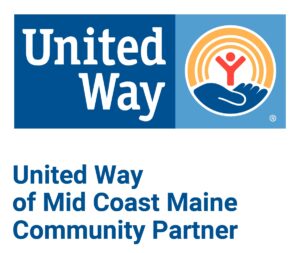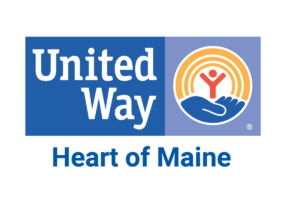-
1973
Spruce Run, the first domestic violence project in the state, opens in Bangor. Mary Cathcart serves as The Community Education Coordinator and as Steering Committee Member. In 1987, she is elected to the Maine House of Representatives.
-
1977
The Maine Coalition for Family Crisis Services (MCFCS) holds its first statewide meeting. MCFCS later becomes the Maine Coalition to End Domestic Violence (MCEDV).
-
1978
Governor Longley vetoes an act to approve emergency shelters. The veto is overridden in the House but sustained in the Senate. The National Coalition Against Domestic Violence incorporates. Family Crisis Services (then Family Crisis Shelter) opens in Portland.
-
1979
Maine legislature approves $142,500 shelter funding for victims of domestic violence statewide.
-
1980
Law enforcement officers at the scene of an alleged incident of abuse must enforce Maine Criminal Code sections whether the incident involves a stranger, or family or household members. The legislature enacts Maine’s Protection from Abuse Order.
-
Early 1981
Victims of domestic violence start New Hope for Women, Inc. (NHFW) with ten hotline volunteers. The agency becomes a 501c3 nonprofit in Maine.
-
October, 1981
NHFW hires a part-time Director. The agency is one of six domestic violence projects in Maine.
-
Early 1982
The organization moves from a part-time, volunteer organization to becoming a full-time organization with a 24/7 hotline and a VISTA volunteer. NHFW holds its first annual meeting, expands its board, and celebrates the Day of Unity.
-
1983
NHFW joins the Maine Coalition of/for Family Crisis Services and expands its services. The agency merges with the Lincoln County Domestic Violence Coalition. The first annual Walk Against Family Violence occurs and the Knox County Sexual Abuse Task Force forms.
-
1984
The Victim of Crimes Act (VOCA) passes in congress. Battered women are eligible for special preference in receiving federal housing assistance through the Department of Housing and Urban Development (HUD).
-
1985
NHFW Inc. expands to Belfast. The Newcastle office moves to Damariscotta. The agency provides individual and group support for children in response to increased funding.
-
1986
NHFW hires a part-time Volunteer Coordinator.
-
1987
The Family Violence Prevention Services Act authorizes $45,000 in federal funds to assist Maine domestic violence programs in. NHFW now includes four full-time staff and 50 volunteers. The agency has served 800+ women to date.
-
1988
NHFW hires a Community Response Coordinator to raise awareness.
-
1989
The Maine Legislature approves additional state funds for outreach activities. The Maine State Housing Authority funds the Shelter Operating Subsidy Grant.
-
1991
Domestic violence is included in determining custody and visitation.
-
1993
The State passes a stalking law and a law allowing for work leave where domestic violence is a concern.
-
1994
Maine enacts the interstate enforcement of Protection From Abuse Orders (PFAs). Those subject to PFAs and who are a “credible threat” to an intimate partner or child cannot possess firearms. NHFW works with PenBay Medical Center to implement a domestic violence policy, prints the first guide for abused teens, and opens transitional housing in Knox and Waldo Counties.
-
1995
Public Law 405 requires batterer intervention programs to be state certified, expands conditions of parent-child contact in cases of domestic abuse, and clarifies of duties of guardian ad litems. NHFW founds Time for Change, a certified batterer intervention program.
-
1996
NHFW holds its first marathon, “Women and Friends on the Move,” to raise funds.
-
1997
The Maine Homicide Review Panel forms. Services expand to the Penobscot Nation. Several resource centers hire attorneys. The State’s district court opens a family division. NHFW starts a program for children who have witnessed domestic violence.
-
1998
NHFW invites area schools to attend “The Yellow Dress,” a one-woman play about domestic violence.
-
1999
Eastern Maine Medical Center (EMMC) and Child Protective Services include staff to address cases involving domestic violence. Employers must grant leave from work for services needed as a result of domestic violence, sexual assault or stalking. NHFW’s Island Outreach Program begins.
-
2000
The Commission to Study Domestic Violence establishes policies on victim notification when an abuser is released from jail. Governor King views domestic violence as “Maine’s public enemy number one.” Empty seats in the legislative hall represent those killed by abusers.
-
2001
The Violence Intervention and Prevention bill increases funding to domestic violence projects and sexual assault centers. Time for Change Merged with New Hope for Women.
-
2002
Federal funding decreases due to the attack on September 11th. The outreach position at EMMC is eliminated and Child Protective liaison work decreases. NHFW’s Empty Place at the Table (EPATT) begins as a memorial to four local women killed as a result of domestic violence.
-
2004
State agencies must partner with MCEDV and the Maine Coalition Against Sexual Assault to develop, implement and promote workplace policies that address domestic violence, sexual assault and stalking. New Hope for Women opens transitional housing units in Lincoln County. Collaborations with the Penobscot Nation increase.
-
2005
New Hope for Women starts court and legal programs.
-
2006
Protections for companion animals and livestock of victim-survivors requesting Protection from Abuse orders are enacted. The Child Protective liaison position is reinstated. NHFW begins working with Pine Tree Legal Assistance.
-
2007
With the passage of LD 988, victim-survivors can seek relief from former dating partners (whether or not sexual partners), stalking and sexual assault.
-
2008
Attorneys can represent victims of domestic violence, dating violence, sexual violence, and stalking in civil matters. NHFW holds Volleys Against Violence, the first tennis tournament to raise awareness, partners with libraries to hold displays, and provides trainings for police.
-
2009
New Hope for Women purchased the Butler House where the agency is currently located.
-
2013
New Hope for Women establishes its first High Risk Response Team (HRRT) in Waldo County to serve victim-survivors at high risk of re-assault and/or lethal assault.
-
2019
LD1171, an act to prevent sexual and domestic violence and to support victim-survivors, passes. New Hope for Women starts a High-Risk Response Team in Lincoln County and hires a new Executive Director.
-
2020
NHFW rises to the challenge of the COVID pandemic by implementing a chat service and by working with area lodging sites to provide 3,056 shelter nights. Calls, time spent on calls, and remote contacts all increase significantly.
-
2021
Governor Mills signed LD 1408, An Act To Increase The Protection Of Children From Domestic Abuse And Violence, into law on June 23rd. The act requires Guardians ad Litem to take a 6-hour core training in domestic abuse, with another 2 hours of continuing education in domestic violence required of them each year.
-
2021
The agency celebrates 40 years of service to Midcoast Maine residents and changes its name to New Hope Midcoast to accurately reflect the people it serves. This inclusive name better reflects the fact that the agency serves all people regardless of gender, race, age and economic circumstances.
-
2022
New Hope Midcoast opens 11 additional transitional housing units, including its first in Sagadahoc County.
-
2022
New Violence Against Women Act (VAWA) laws are signed into law in March and will take effect October 1, 2022. The laws include improvements in the following areas for survivors and others: access to services, criminal justice response, addressing economic needs, civil legal response, access to safe housing, prevention and education, and culturally specific programs.
-
2022
NHM holds its first Roundtable Discussion focusing on domestic abuse in rural areas.
New Hope Midcoast continues to be a dynamic, community-based organization that actively works in Sagadahoc, Lincoln, Knox and Waldo Counties to create a future where domestic abuse no longer exists. Our comprehensive, multi-prong approach addresses what we view as a social justice issue and includes advocacy, prevention and education programs.
Sign Up for Our Newsletter!
Stay informed and updated about our initiatives, fundraisers and more. To be included on our e-newsletter list or mailing, please visit our sign-up page and fill out a brief form.
New Hope Midcoast Locations
We offer 3 onsite locations serving Sagadahoc, Lincoln, Knox, and Waldo counties in Maine.
MAILING ADDRESS FOR ALL OFFICES:
New Hope Midcoast
P.O. Box A, Rockland, Maine 04841
24/7 Helpline Midcoast Maine 1-800-522-3304
24/7 Statewide Helpline
1-866-834-4357


